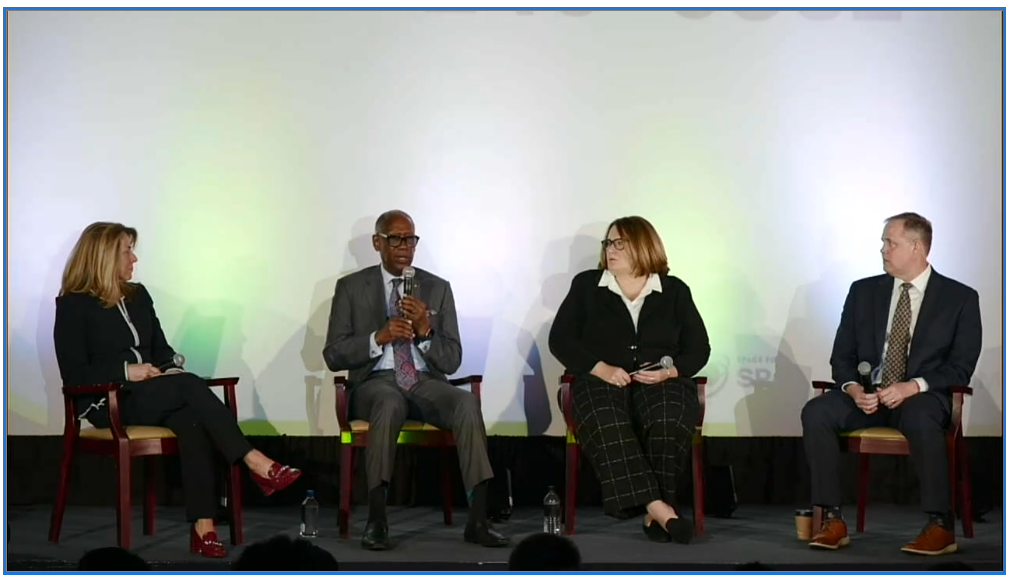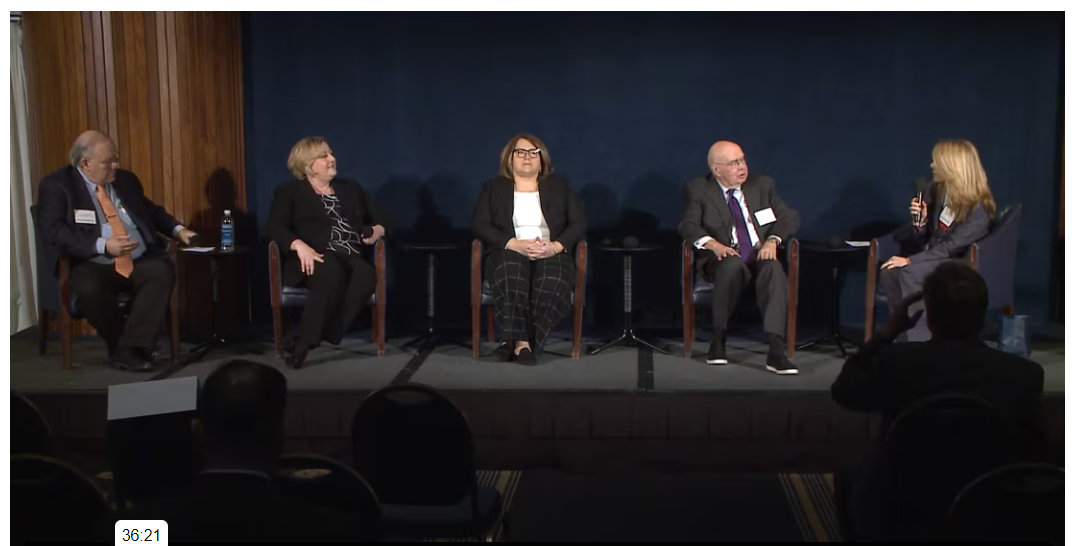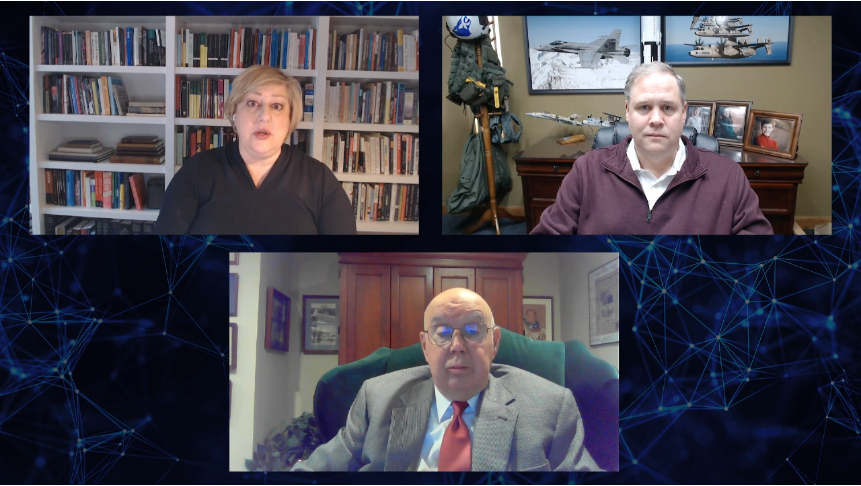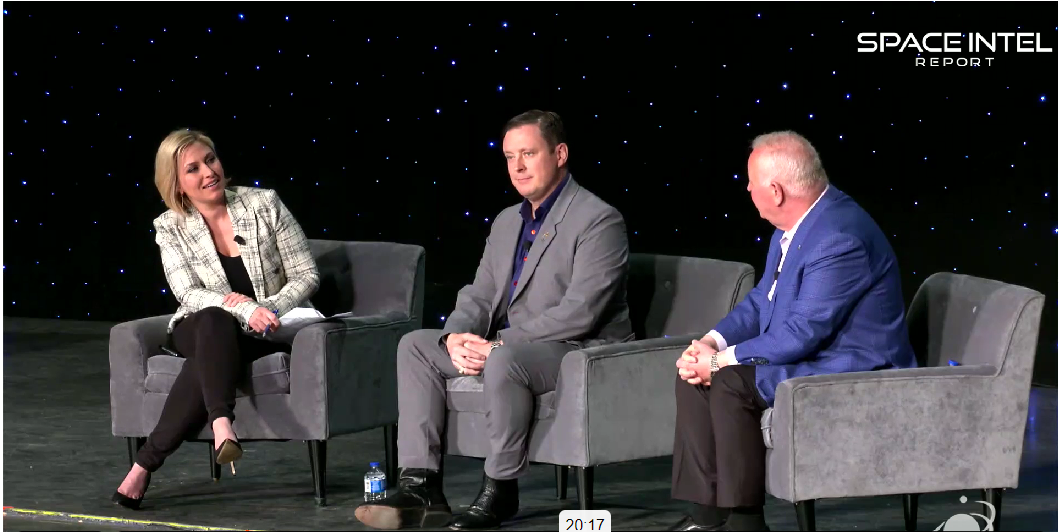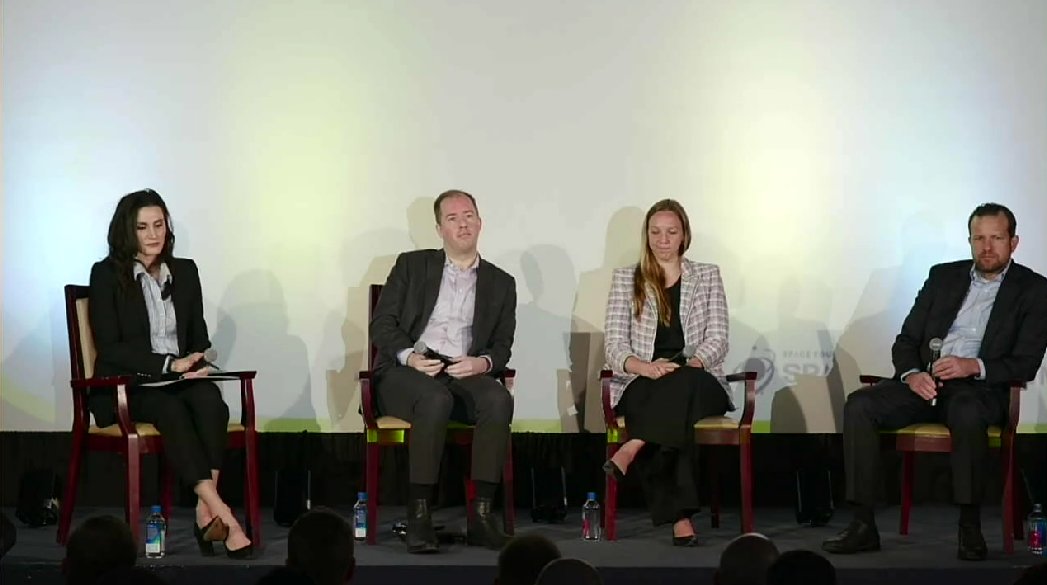Space Matters: Space Race 2.0 More Complex and Far More Promising
Originally aired on: November 8, 2023
How will the next phase of the international space race differ from the U.S-Soviet space race of the 1960s? What effect will political alliances, global commercial space markets and entrepreneurial innovation have in shaping new outcomes and the future?
In the fourth season of Space Foundation’s “Space Matters,” four government and industry leaders define the components of the Space Race 2.0 and offer their expertise about how the global space industry is rapidly evolving. Led by former U.S. Rep. and Moon Walker Associates CEO Bob Walker, Space Matters features former NASA administrator and former U.S. Rep. Jim Bridenstine, BryceTech CEO and founder Carissa Christensen, and Constellation Advisory LLC’s President and founder Patricia Cooper. The four deliver unparalleled analysis focused on space programs and the regulatory and business environment.
The group’s latest discussion, which Space Foundation released today, details the complexities of the new space frontier: No longer are partnerships being driven solely by two nations or even by government alone. Today, alliances are being forged from government to government, government to business, business to business and by businesses reaching out to governments.
“Yes, we have a space race, but reality is it’s a far different space race (from that between the U.S. and the Soviets), the complexities of which I don’t think we fully understand,” Walker said. “It’s going to require a lot of cooperation. It also means on national security side there are some areas where we won’t.”
All four spoke to the growing influence of commercial space, with Christensen noting that in last decade space has seen about $50 billion in venture investment, with $40 billion in last five years, she said. U.S. companies have received about 70% of that. Nations that partner with, the United States, including the U.K., Japan, France, Germany, India, are building their commercial space through specific, targeted investment.
Bridenstine pointed to China’s planning and speed at delivering on its space initiatives and how that country is following along a path similar to the Artemis Accords by reaching out to other nations to partner on space programs. The Artemis Accords now include 31 member nations. For the United States, Bridenstine said, its strength will not be in its government process.
“The way we compete is we say we’ve got innovative entrepreneurs, we’ve got financial markets, we’ve got capital markets, and we’re going to use the best of everything America has to achieve outcomes that right now we don’t even know what the outcomes are going to be, he said. “The United States of America is not going to out-centrally plan China. We don’t have that in our ability given how we govern. However, we do have the ability to out-entrepreneur pretty much every nation on the planet, and that’s what we ought to be doing.”
The growth and complexity of commercial space, even in 20 short years, makes for a messier process, Cooper agreed, but it also means a wider, more diverse space ecosystem that delivers more opportunity.
For Walker, too, it’s evidence of remarkable progress in a relatively short time.
“I remember back in the days when I’d make speeches about commercial space and get laughed out of the room,” Walker said. “It was never going to be anything other than government space. Today we’re seeing in the 21st century it’s a far different pattern than what we had.”
Speakers
RELATED VIDEOS
MOST RECENT VIDEOS
Symposium Highlights
Late Breaking News: Intuitive Machines Live from Space Symposium 2024
Originally aired on: April 11, 2024
Space Investment Analysis
Symposium Highlights
Space Investment Analysis: Live from the 2024 Space Symposium
Originally aired on: April 8, 2024
Space Matters
Symposium Highlights
Space Matters: Live from the 2024 Space Symposium
Originally aired on: April 8, 2024




